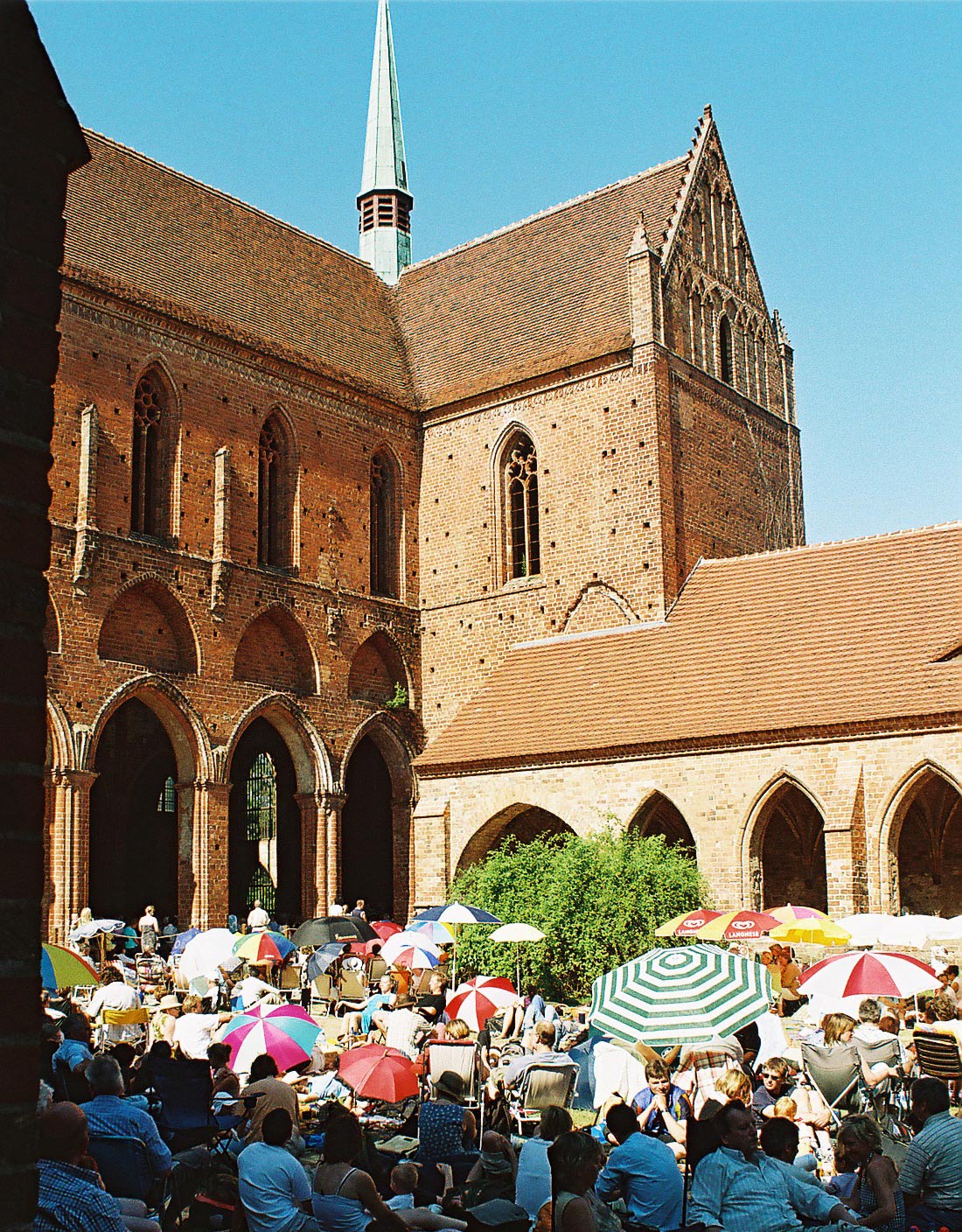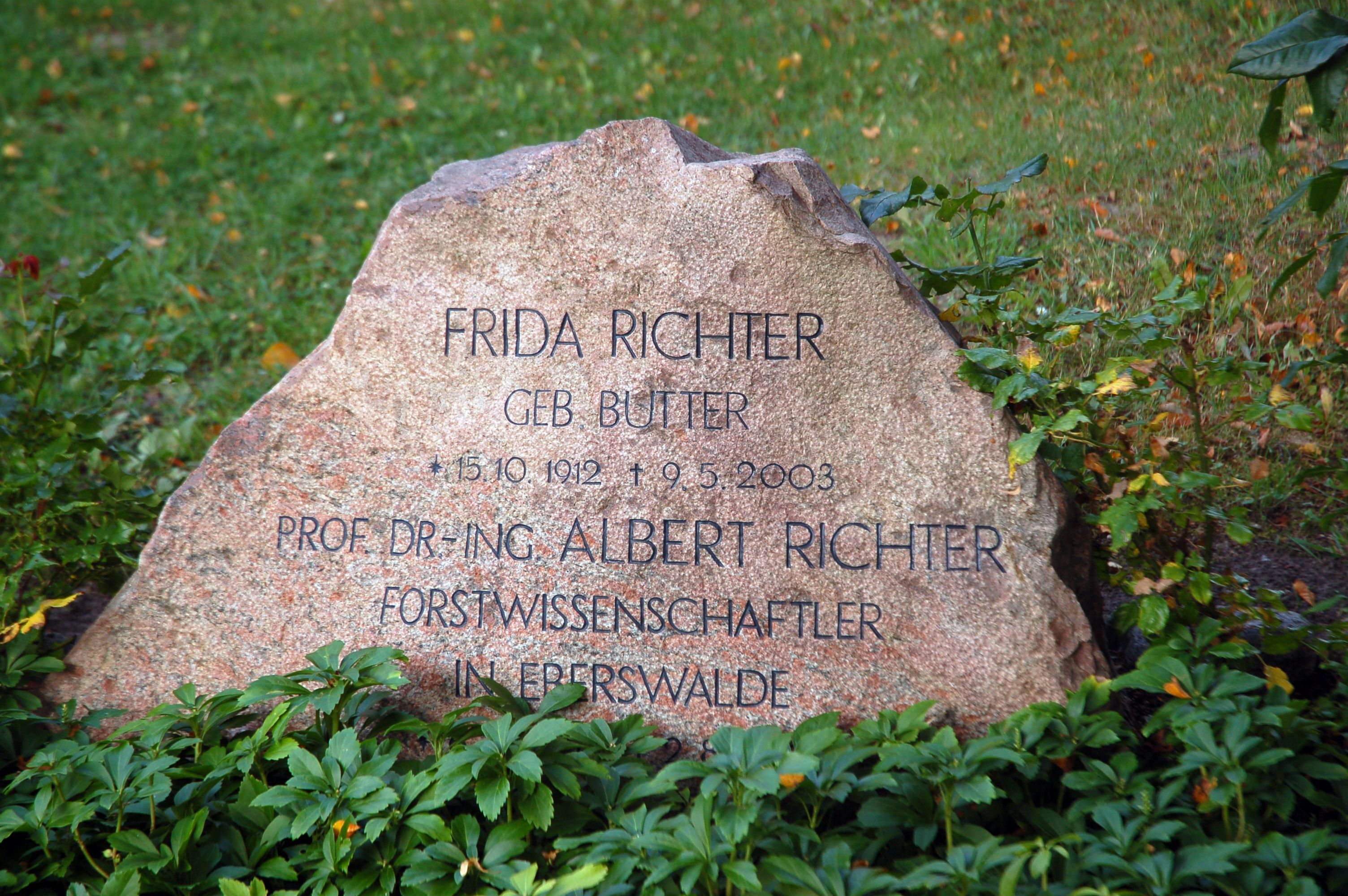|
Choriner Musiksommer
{{Short description, German music festival The Choriner Musiksommer (literally, ''Chorin's Summer of Music'') is an outdoor music festival held in the ruins of the convent of Chorin Abbey in Chorin, Brandenburg, Germany. It originated as a single annual concert, established on 23 May 1964 by Albert Richter (forester), Albert Richter as an event for employees of the Hochschule für nachhaltige Entwicklung Eberswalde, Hochschule für nachhaltige Entwicklung (Eberswalde University for Sustainable Development) in Eberswalde. The forest administration then managed the monastery ruins. So they became the venue for the concert. The number of concerts was raised to four in 1970 and from then until 1973 numbers rose from 600 to 1200 and finally 2,100 per concert. In 1974 the number of concerts was increased to thirteen. After the fall of the Berlin Wall in 1989 the festival's organisation was transferred to an independent organisation (Choriner Musiksommer e.V.). It now consists of ninet ... [...More Info...] [...Related Items...] OR: [Wikipedia] [Google] [Baidu] |
Chorin Abbey
Chorin Abbey (Kloster Chorin) is a former Cistercian abbey near the village of Chorin in Brandenburg, Germany. It was founded by the Ascanian margraves in 1258 and had far-reaching influence on the northern edge of the Ascanians' sphere of influence, where it bordered with the Slavs. It was secularized in 1542 and allowed to decay until the early 19th century, when the ruins were restored and the building partly rebuilt under the direction of Karl Friedrich Schinkel. It is now an archetypal example of the Brick Gothic Brick Gothic (, , ) is a specific style of Gothic architecture common in Baltic region, Northeast and Central Europe especially in the regions in and around the Baltic Sea, which do not have resources of standing rock (though Glacial erratic, ... style and part of the . Some scenes in the 1912 film '' Das Mirakel'' were filmed there.* References External links *http://www.kloster-chorin.org/ *http://www.cistercensi.info/abbazie/abbazie.php?ab=819&lin= ... [...More Info...] [...Related Items...] OR: [Wikipedia] [Google] [Baidu] |
Chorin
Chorin () is a municipality in the district of Barnim in Brandenburg, Germany. It is most famous for its cloister and for being situated within the Schorfheide-Chorin Biosphere Reserve. It is famous for its medieval Brick Gothic Chorin Abbey and the Choriner Musiksommer music festival held there. History From 1815 to 1947, Chorin was part of the Prussian Province of Brandenburg, from 1947 to 1952 of the State of Brandenburg, from 1952 to 1990 of the Bezirk Frankfurt of East Germany East Germany, officially known as the German Democratic Republic (GDR), was a country in Central Europe from Foundation of East Germany, its formation on 7 October 1949 until German reunification, its reunification with West Germany (FRG) on ... and since 1990 again of Brandenburg. Demography See also * Amtssee References External links Chorin at britz-chorin-oderberg.de (German infopage) [...More Info...] [...Related Items...] OR: [Wikipedia] [Google] [Baidu] |
Albert Richter (forester)
Albert Richter (6 May 1909 – 2 August 2007) was a German academic and expert in silviculture or forest management. He is notable for founding the Choriner Musiksommer music festival, developing a new planning-process for forest management for the German Democratic Republic in the 1950s, and writing several works on the history of forest management, including a biography of Heinrich Cotta. He also served as a professor and director of the Forestry College in Eberswalde. Richter was born in Lossnitz in Freiberg, Saxony in 1909 and died, aged 98, at Eberswalde in Brandenburg in 2007. External linksBooks by and about Albert Richterin the Deutschen Nationalbibliothek The German National Library (DNB; ) is the central archival library and national bibliographic centre for the Federal Republic of Germany. It is one of the largest libraries in the world. Its task is to collect, permanently archive, comprehensiv ... *https://web.archive.org/web/20070927202539/http://www.moz.de/inde ... [...More Info...] [...Related Items...] OR: [Wikipedia] [Google] [Baidu] |
Hochschule Für Nachhaltige Entwicklung Eberswalde
The Eberswalde University for Sustainable Development (, literally ''University for Sustainable Development''; abbreviated in German as ''HNE Eberswalde'' or ''HNEE'') is a Fachhochschule in Eberswalde, Germany. It was founded 1830 as a higher institute (''Höhere Forstlehranstalt'') of forestry. It was re-established in its present form as a Fachhochschule, or university of applied sciences, in 1992, with a range of courses and content geared towards sustainable development. In 2010 it was renamed the Entwicklung Eberswalde (FH). Since December 1997 its president has been Wilhelm-Günther Vahrson. Notable person *Julius Lothar Meyer Julius Lothar Meyer (19 August 1830 – 11 April 1895) was a German chemist. He was one of the pioneers in developing the earliest versions of the periodic table of the chemical elements. The Russian chemist Dmitri Mendeleev (his chief rival) an ... See also * List of historic schools of forestry External links Official site*http://www.ut ... [...More Info...] [...Related Items...] OR: [Wikipedia] [Google] [Baidu] |
Eberswalde
Eberswalde () is a major town and the administrative seat of the district Barnim in Brandenburg in north-eastern Germany, about northeast of Berlin. Population 42,144 (census in June 2005). The town is often called Waldstadt (forest town), because of the large forests around it, including the Schorfheide-Chorin Biosphere Reserve. Despite this fact, Eberswalde was an important industrial center until the German Reunification. History Prehistory The area around Eberswalde was already populated in Paleolithic. Before the establishment of the Margraviate of Brandenburg it was the place of a Slavic tribes, Slavic stockade. The Eberswalde Hoard, Treasure of Eberswalde, the largest pre-Christian gold treasure from the area of today's Germany was found here. Today the treasure is located in the Pushkin Museum in Moscow. Founding and development The town of ''Everswolde'' ("forest of the boars") was established in 1254 by the Ascanian margrave Johann I. It was first mentioned in a docu ... [...More Info...] [...Related Items...] OR: [Wikipedia] [Google] [Baidu] |
Fall Of The Berlin Wall
The fall of the Berlin Wall (, ) on 9 November in German history, 9 November 1989, during the Peaceful Revolution, marked the beginning of the destruction of the Berlin Wall and the figurative Iron Curtain, as East Berlin transit restrictions were overwhelmed and discarded. Sections of the wall were breached, and planned deconstruction began the following June. It was one of the series of events that started the Revolutions of 1989, fall of communism in Central and Eastern Europe. The fall of the inner German border took place shortly afterward. An end to the Cold War was declared at the Malta Summit in early December, and German reunification took place in October the following year. Background Opening of the Iron Curtain The opening of the Iron Curtain between Austria and Hungary at the Pan-European Picnic on 19 August 1989 set in motion a peaceful chain reaction, at the end of which there was no longer an East Germany and the Eastern Bloc had disintegrated. After the picnic ... [...More Info...] [...Related Items...] OR: [Wikipedia] [Google] [Baidu] |
Classical Music Festivals In Germany
Classical may refer to: European antiquity *Classical antiquity, a period of history from roughly the 7th or 8th century B.C.E. to the 5th century C.E. centered on the Mediterranean Sea *Classical architecture, architecture derived from Greek and Roman architecture of classical antiquity *Classical mythology, the body of myths from the ancient Greeks and Romans *Classical tradition, the reception of classical Greco-Roman antiquity by later cultures *Classics, study of the language and culture of classical antiquity, particularly its literature *Classicism, a high regard for classical antiquity in the arts Music and arts *Classical ballet, the most formal of the ballet styles *Classical music, a variety of Western musical styles from the 9th century to the present *Classical guitar, a common type of acoustic guitar *Classical Hollywood cinema, a visual and sound style in the American film industry between 1927 and 1963 *Classical Indian dance, various codified art forms whose theor ... [...More Info...] [...Related Items...] OR: [Wikipedia] [Google] [Baidu] |




